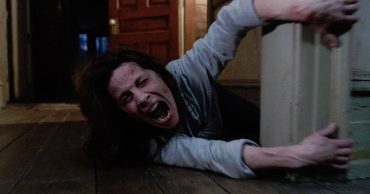
The Central Park Five is an upcoming series that will be shown on Netflix. Given its name, it should come as no surprise to learn that it will be focused on the five teenagers who were convicted of the brutal rape of a female jogger named Trisha Meili on April 19 of 1989, which turned out to be wrongful convictions when a serial rapist and murderer confessed to having committed the crime in 2002. Something that was supported by the fact that said individual’s DNA matched that of the DNA found at the crime scene as well as other evidence found on the crime scene.
So far, Ava Duvernay has been confirmed as the person who will be directing the upcoming series, which she has stated will serve as an exploration of the criminal justice system in the United States. For those who find her name familiar, she is best-known for her role as the director of Selma in 2014 as well as her role as the director of the upcoming A Wrinkle in Time, which is notable because it will be the first movie with a $100 million budget to be directed by a black woman. Other people involved in the project range from Jonathan King and Jeff Skoll to Oprah Winfrey, who has worked with Duvernay on some of her previous projects. The current plan is for The Central Park Five to have five episodes, with each episode covering the upbringing of one of the five teenagers as well as the fallout from their wrongful conviction.
What Happened in the Central Park Jogger Case?
The Central Park Jogger case was one of the most publicized cases of its time, not least because Donald Trump spent an estimated $85,000 to take out full-page ads in all four of the biggest newspapers in New York City calling for the return of the death penalty.
Regardless, Trisha Meili was found in a bad state at around 1:30 am on April 20 of 1989, so much so that it was believed that she wouldn’t survive her injuries. However, even though Meili was in a coma for 12 days because of hypothermia, brain damage, massive loss of blood, and a number of other serious problems, she managed to survive, though the trauma meant that she could remember nothing about what had happened to her.
The police brought in more than the Central Park Five on that night because of their purported connections to incidences of wilding earlier, which is a term for when a group of teenagers attack strangers at random. All of the Central Park Five confessed to some of the crimes that they were been accused of while implicating the others, but went on to retract those confessions by claiming that they had been either coerced, intimidated, or lied to in order to get them to make those confessions. This is supported by how one of the Central Park Five didn’t confess until the police told him that fingerprints had been found on Meili’s clothing.
Ultimately, the entire case against the Central Park Five rested on those confessions because the rest of the evidence was unconvincing at best. For example, the DNA found at the crime scene belonged to a single person that was unknown because it matched none of the five. Furthermore, strands of hair found in one of the Central Park Five’s underpants did not match those of the victim like what the prosecution claimed. Unfortunately, the Central Park Five were convicted in spite of the tenuous evidence, with the result that they spent between six to thirteen years in prison.
In the end, the real perpetrator was not discovered until he confessed to doing it when he was in prison for having committed other crimes of a similar nature, which led to the vacating of the wrongful convictions. However, the Central Park Five had served out their sentences by that time while the real perpetrator was never tried for the rape of Trisha Meili because the statute of limitations had passed.
 Follow Us
Follow Us




